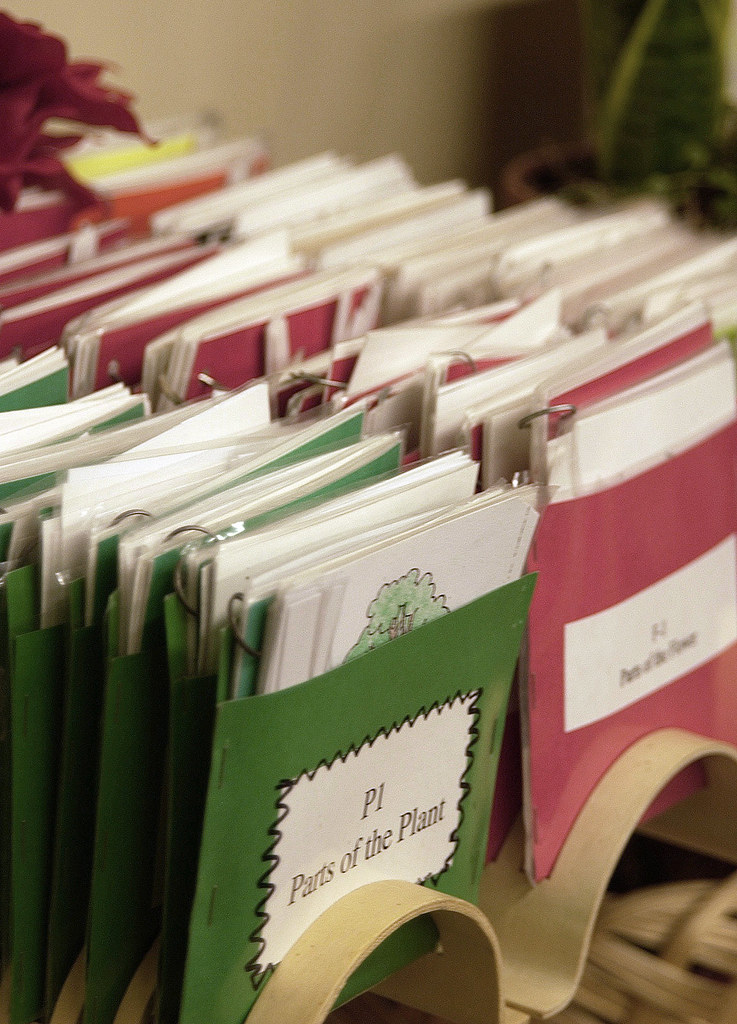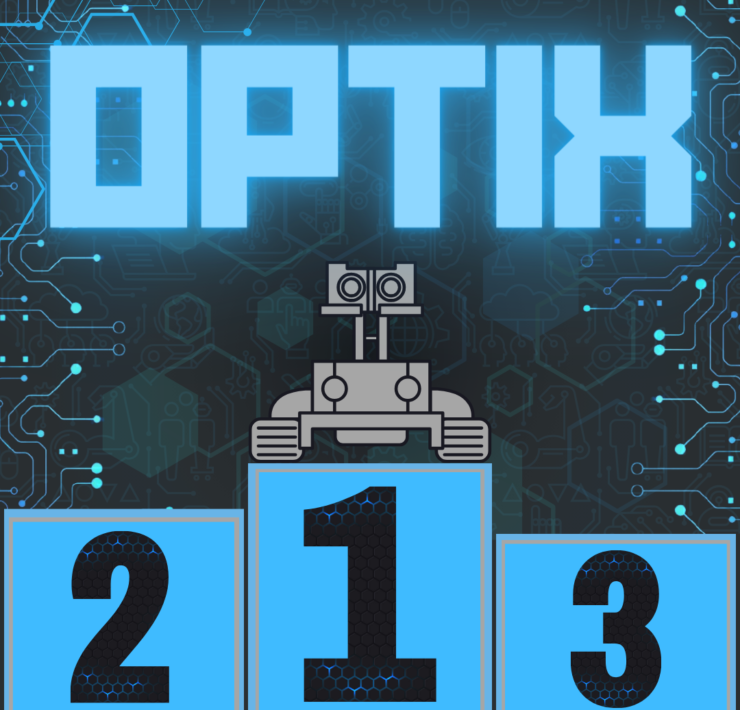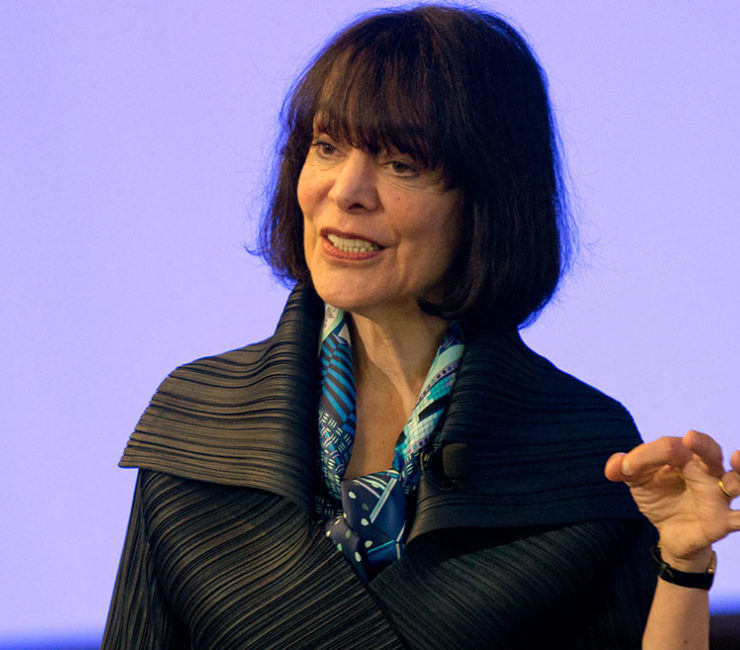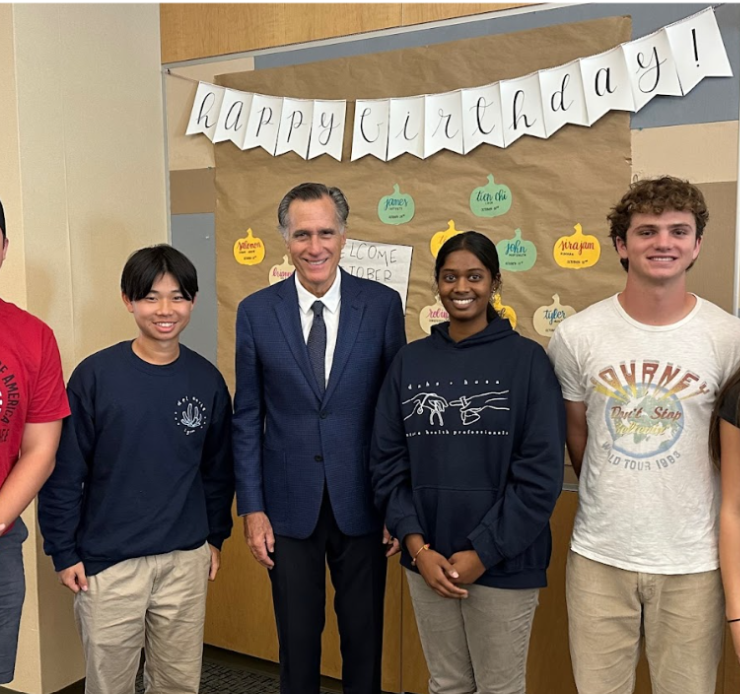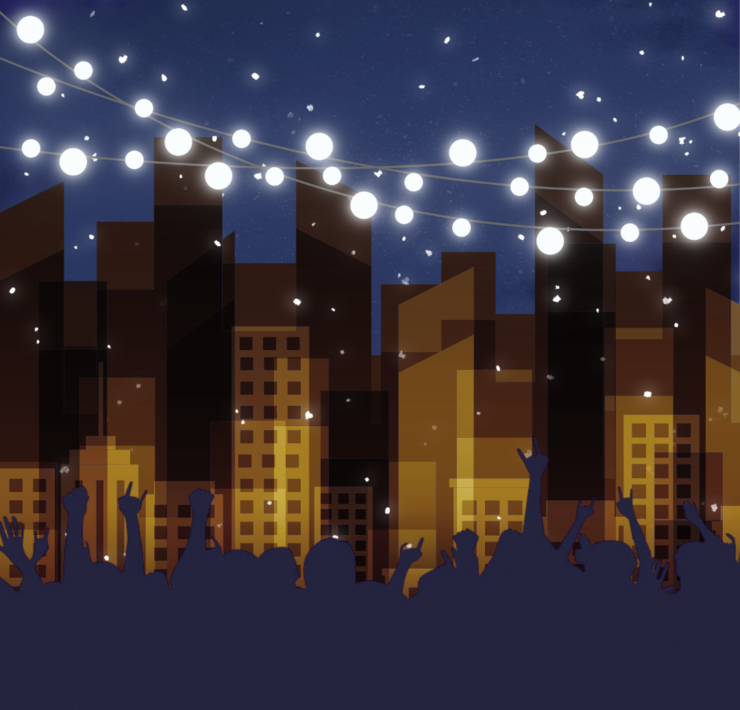Being Non-Binary at DNHS
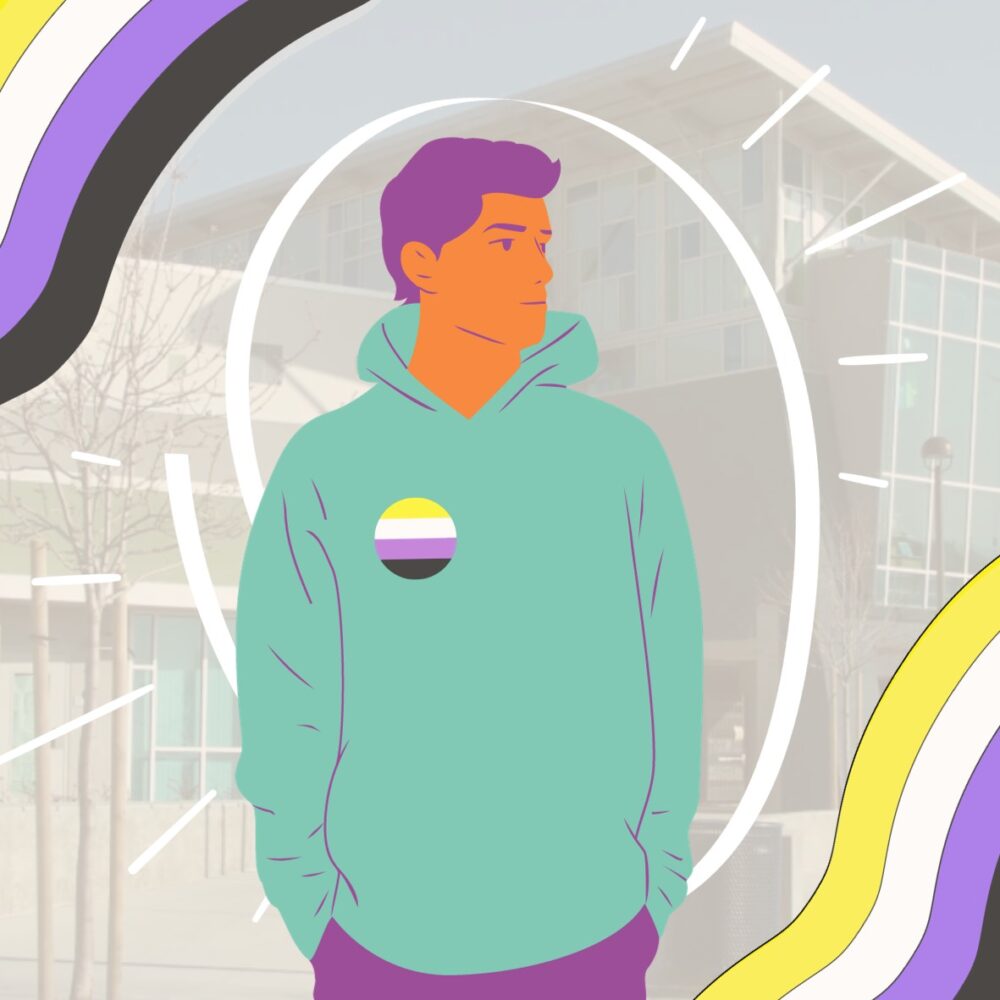
When someone identifies as non-binary, it means that they do not identify with being male or female. Their gender does not fall into what is called the “gender-binary”, or the idea that there are only two genders: man and woman. In schools, non-binary students are guaranteed protection under Title IX, which prohibits the discrimination of a student at school based on their gender identity. So, at DNHS, are we doing enough to welcome and protect non-binary students?
Principal Brian Shultz remarks that the administration team is working to make DNHS a safe and inclusive place for all students. “Del Norte continues to work to establish a school-wide culture where each and every student feels comfortable and safe on campus,” says Shultz. “Safety and student wellness are always our number one priority.”
Nico (‘23), a student at Del Norte who identifies as non-binary, believes there is still a lot of work to be done. “It’s a weird middle ground,” they explain. “Some teachers and staff actually feel like genuine supporters of the LGBTQ community, but then there are others where it just feels forced.”
They also pointed out the importance of teachers being more aware of how they treat the students in their classroom who do not identify as either male or female. “I honestly would like it if all teachers did little things where you put the name you prefer, pronouns, and pronouns or name to use when emailing parents. It’s nice and comforting.”
Nico also believes it is important for others to understand that not all non-binary individuals use they/them pronouns. “I use they/them and he/him; I know [non-binary people] who also use they/them and she/her.”
Kaeya (‘23), another non-binary student at Del Norte, believes that it is the administration’s responsibility to help combat the issue of harassment taking place on campus. “They are the ones who can sometimes interfere in [these] situations, and many times they ignore it.”
Kaeya also brings up the importance of respecting other people’s pronouns, saying, “even if you want to use the person’s pronouns (it is a person’s pronouns, not PREFERRED because there should be no other choice) and chosen name for a person, but you are not sure if the person you are talking to is aware of this, then absolutely do not use them. While respect is very important, it is more important to give the non-binary or any transgender person the power of control over who gets to know the information or not. You could potentially put someone’s life in danger, so do not do this at any cost.”
In regards to the discrimination and harassment that non-binary people face Schultz says, “We are constantly setting expectations that bullying, harassment, or discrimination are not acceptable or part of the culture at DNHS…We also have a hate and harassment reporting tool, where students can report any unacceptable behavior.”
Kaeya believes that it is difficult for the administration to make DNHS a safe and inclusive place for non-binary students when the culture of our school constantly harasses those who identify as non-binary., “Even though [the administration has] done their best as allies, it is a really difficult thing to do, so I do not blame the administration or anyone in any way for [not doing enough]. There is a culture in the student body that constantly mocks this and [it] is very hard to change.”
Kaeya also explains how it is important for students to be educated about the experiences of non-binary people so that these prejudices can be torn down. “Hopefully, we can educate [the student body] and become relevant enough [so that] everyone may actually want to listen to what we have to say.”
The work to make DNHS safer for non-binary students also includes the availability of locker rooms and bathrooms. Kaeya also brings up the point that, “There have been gender neutral bathrooms, but very few people know about this and it is always locked and believed to be unusable, which forces [non-binary] students to be confronted in the other bathrooms.” She also explains that creating specific gender neutral bathrooms on campus is incredibly important.
In regards to gender-neutral bathrooms, Principal Schultz says, “Currently there are no plans to create more gender neutral bathrooms or locker rooms at DNHS. We work individually with students and their families on any concerns or accommodations.”
Some of the important initiatives being taken to make DNHS and the entire school district more welcoming for non-binary students include an emphasis on providing resources to non-binary students so that they can feel safer at school. According to the Associate Superintendent of Learning Support Services, Carol Osborne, “Ensuring our school cultures and classrooms foster a sense of belonging is a key focus. We are currently working with SDCOE Equity Department and Kathy Moehlig from Trans Family Services to develop a Gender Support Plan for students as needed. This resource will help create a shared understanding among school staff, parents, and the student about the ways in which the student’s authentic gender will be accounted for and supported at school.”
With these resources, the district hopes to make the school community a safer place for non-binary students, but according to Kaeya, a lot of this depends on significant changes in the people on campus. “I think you can just do your best to educate, but doing beyond that is dependent on the individuals themselves and hate will always occur in someplace or another. It is a part of life that we kind of have to accept, but we do not have to stay silent about.”
Nicole was the former News Editor for The Talon. She is very passionate about writing and wants to be an investigative reporter someday. She is also a cinephile and will talk about movies with you for hours. Her favorite film is Citizen Kane.

